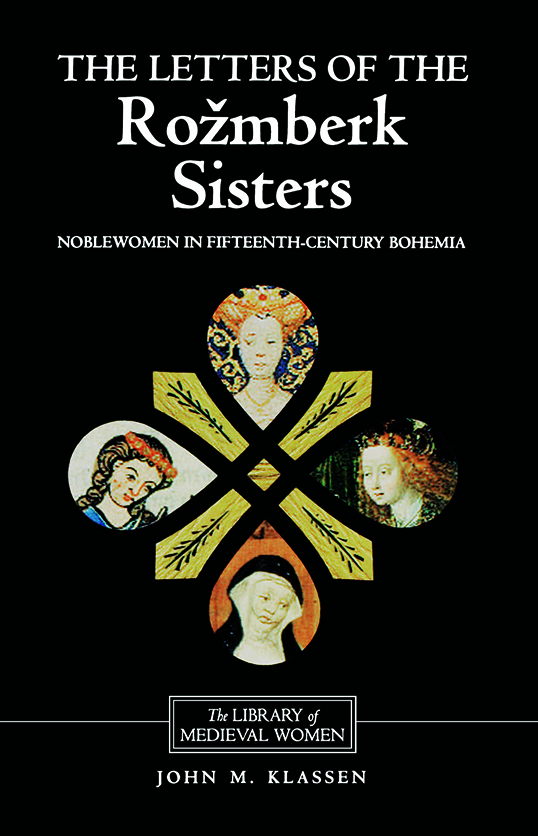Introduction
Published online by Cambridge University Press: 22 March 2023
Summary
The home of the Rožmberk family was a realm of politics, economics, and culture, as well as a space for nurturing of personal and social bonds between brothers and sister. The correspondence of Perchta and Anéžka reveals not only two self-assured sisters, but a strong family of a father and children whose mother died while they were young. The siblings shared domestic space as they grew up under the supervision of a politically involved father to whom they were free to express affection and their most intimate secrets, before whom they could bring their anger and disappointments as well as their hopes and joys. Their home fostered individual confidence as well as a spirit of sibling solidarity. Family bonds remained strong when they as adults rallied to support their sister, Perchta, who was confronted by the strains of personal suffering and loneliness.
1. Daughters of Power
The Rožmberk sisters were members of the most powerful noble family in late medieval Bohemia. Resident in south Bohemia, the Rožmberks were the most successful branch of the Vitkovec family, which traced its origins to Vitek I (d. 1194), who acquired vast expanses of wooded lands, taking advantage of inter-family squabbles in the ruling family. The Vitkovec line skilfully used marriage strategies to increase its holdings, and Rožmberk women, such as Perchta’s grandmother who helped arrange her daughter’s marriage, were well aware of their importance as brides in the family’s pursuit of success and status.
Sometime before 1250 the Rožmberks built a large castle on the upper Vltava River, and according to the knightly fashion of the day, gave it a German name, Rosenberg, after their emblem the rose, but used its Czech form, Rožmberk. Rožmberk ambitions and sense of importance were further reflected in the building of a grandiose Sometime before 1250 the Rožmberks built a large castle on the upper Vltava River, and according to the knightly fashion of the day, gave it a German name, Rosenberg, after their emblem the rose, but used its Czech form, Rožmberk. Rožmberk ambitions and sense of importance were further reflected in the building of a grandiose Cistercian monastery at Vyšší Brod in 1259, which became not only an ecclesiastical administrative centre but also the burial place for the family.
- Type
- Chapter
- Information
- The Letters of the Rozmberk SistersNoblewomen in Fifteenth-Century Bohemia, pp. 1 - 26Publisher: Boydell & BrewerPrint publication year: 2001

